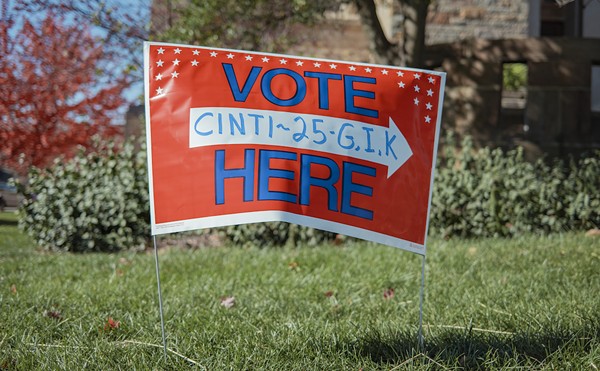|
"J-a-y are the letters of his name/ Cutting and scratching are the aspects of his game."
— Run D.M.C.
Somewhere — perhaps in that ubiquitous kitchen "junk drawer" or packed away in that dusty shoebox in the darkest corner of the bedroom closet — lays The Tape.
True Hip Hop connoisseurs know what tape I'm referring to — that cracked, low-quality, distorted cassette tape recording of a classic radio mix show from the 1980s or '90s that you can't seem to let go of (even though it's been a few years since you had a functioning cassette player in your home or car). This was the same tape that accompanied you on every road trip; the one you kept in your Walkman on your trips to the neighborhood gym.
We all had at least one tape. It might have been Cleveland's Cochise, New York's DJ Red Alert, Chicago's Bad Boy Bill, Philly's DJ Jazzy Jeff or any number of old-school blend-and-scratch masters (including local old-school legends from WBLZ and WDAO). But The Tape has the uncanny ability to instantly take you to a time when life was much less complicated. Funny how good music can do that.
Although modern-day turntablism is now recognized as a legitimate form of urban expression (as evidenced by the DJ competitions held during Cincinnati's annual Scribble Jam event), there's something sacred about that battered cassette tape and the slice of Hip Hop history it holds: classic, off-the-dome freestyles, celebrity promos, unimaginable blends. These were moments that could be recorded but certainly never duplicated.
Not surprisingly, old-school, over-the-air mix recordings from some of the industry's best-known broadcast DJs are selling for top dollar on the Internet. Seems like everyone is willing to pay for a glimpse of a past they've already experienced. (I'm guilty — I've purchased a handful myself.)
Hoping to recapture the moment, a year or two ago I took a chance on a "mix CD" from a street vendor during a festival downtown. Though I'd never have purchased most of the material on the CD separately, I thought it would be nice to hear some old-fashioned turntable wizardry like Grandmaster Flash, Jazzy Jeff or the late, great Jam Master Jay were famous for.
Times have changed. I was sorely disappointed when I heard little more than 60 minutes of shameless self promotion and shout-outs over poorly mastered instrumentals of familiar Hip Hop tracks and — worst of all — no mixing. I'd just purchased another $10 coaster for the coffee table and stumbled upon the discovery that even mix CDs — like nearly everything else in Hip Hop culture — had gone commercial.
I have to admit, however, that I can appreciate the way today's mix CDs provide an effective distribution channel for new and/or underground artists who don't enjoy the consistent financial backing of major labels. More established artists such as Jadakiss, Freeway, Mos Def and Nas routinely use the mix CD circuit to warm up prior to the release of a full-length CD without the budgetary constraints of producing or purchasing exclusive tracks.
Lyrical activist Talib Kweli attempted to preempt the illegal download of his forthcoming CD Beautiful Struggle by releasing The Beautiful Mixtape, providing eager fans with a taste of what would appear on the full version of his CD. DJ Danger Mouse's The Grey Album, which blends vocals from Jigga's The Black Album over the instrumentals from The Beatles' "White Album," has become an instant underground classic — particularly after record company EMI (owner of The Beatles album masters) served the DJ with a cease-and-desist notice. Downloads of the mix have skyrocketed ever since.
Ironically, although many mix CDs carry the names of the DJ who produces, arranges and mixes the tracks (Funkmaster Flex comes immediately to mind), it's often the lyricist(s) who take center stage. Rarely is the DJ able to showcase his or her talents like in the old days when Detroit's Jeff Mills (aka The Wizard) would cut back and forth between copies of Run DMC's "King of Rock" and LL Cool J's "Rock the Bells" so quickly that it sounded like the artists were rapping at the same time, or when Philly's DJ Jazzy Jeff (or DJ Cash Money, according to some accounts) came up with a scratching technique that sounded eerily similar to the sound made by Transformer robots.
I reminisce about these moments the same way my dad can recall the first time he heard a Lionel Hampton composition. In fact, one of my old mix tapes includes Run DMC's "Here We Go: Live at the Funhouse," where they freestyle over an instrumental of Billy Squier's "Big Beat." When's the last time you heard that?
I think I'll go find that tape now.
KEVIN BRITTON writes about Hip Hop music and its impact on popular culture. His column appears monthly in CityBeat.





